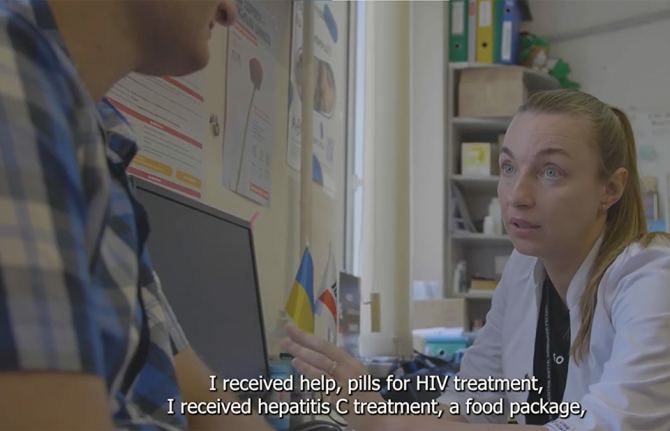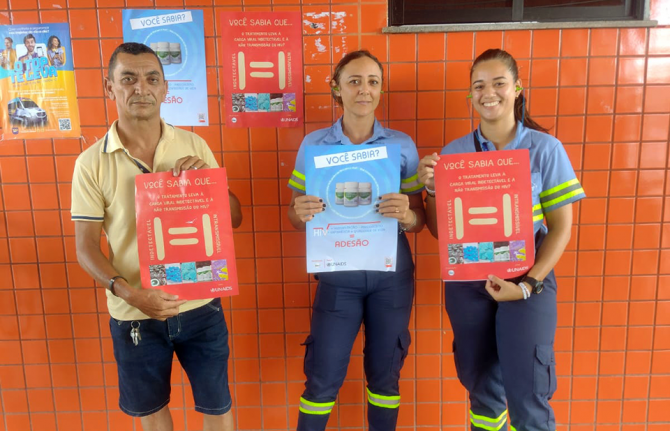
Feature Story
Belgium launches robust national HIV plan
16 October 2013
16 October 2013 16 October 2013
UNAIDS Executive Director Michel Sidibé expressed his gratitude for Queen Mathilde’s unprecedented commitment to the global AIDS response.
Belgium has taken a substantial step forward in its AIDS response this week with the launch of its first and much-anticipated National Strategic Plan on HIV. The plan was endorsed at the very highest level, with Queen Mathilde joining a number of top-ranking Belgian ministers and UNAIDS Executive Director Michel Sidibé to oversee the 15 October launch.
The 2014-2019 strategic plan has three central pillars: HIV prevention; testing and treatment; and care and support. It addresses a context in which more than a thousand new HIV infections are being reported each year. The plan prioritizes most affected populations including men who have sex with men and migrant workers. Despite relatively low numbers of people living with HIV in Belgium—the AIDS epidemic remains a concern as the rate of new HIV infections has not declined in recent years.
Far-reaching, multi-year and multi-sectoral, the plan was developed through a highly consultative process with the engagement of a range of actors including people living with HIV, key populations, medical professionals, community activists and national authorities. UNAIDS was also involved in its development.
At the launch Mr Sidibé commended Belgium’s efforts in its commitment to the AIDS response and noted that the pioneering plan represented an ambitious model for other European countries, especially with its focus on key populations.
We have the responsibility for this plan to be more than just a great achievement – it should be a starting point. A starting point for political action we will lead all together, by joining forces, with all partners assembled around one same cause.
Laurette Onkelinx, Vice-Prime Minister of Belgium
“This is an example of how a successful AIDS Plan should be designed—centred around people focused on preventing new HIV infections and comprehensive access to a full package of HIV services, particularly for the most vulnerable in society,” said Mr Sidibé. “I’m sure that once fully implemented the plan will enable Belgium to push its epidemic into rapid decline.”
Following the launch Mr Sidibé had further discussions with Laurette Onkelinx Vice-Prime Minister of Belgium and the federal government’s Minister of Social Affairs and Public Health. During the meeting they discussed how best to address the challenges of ensuring the right to health for men who have sex with men, as well as migrant workers and refugees. Ms Onkelinx stressed Belgium’s political commitment to supporting vulnerable populations.
“We have the responsibility for this plan to be more than just a great achievement – it should be a starting point,” said Ms Onkelinx. “A starting point for political action we will lead all together, by joining forces, with all partners assembled around one same cause”.
During his visit Mr Sidibé also met Queen Mathilde who has made the issue of HIV and children a personal priority and has endorsed the Global Plan towards the Elimination of New HIV Infections among Children by 2015 and Keeping Their Mothers Alive. Mr Sidibé expressed his gratitude for the Queen’s unprecedented commitment to the global AIDS response.
As well as taking full ownership for its domestic response to HIV, Belgium continues to play a key role in the international AIDS response. Playing an active role as member of UNAIDS Programme Coordinating Board, earlier this year Belgium renewed its financial pledge to UNAIDS for 2013, 2014 and 2015 for an overall amount of EUR 14.52 million to support UNAIDS’ efforts in helping countries reach their HIV targets. This contribution places Belgium again among UNAIDS top 10 donors.
To further discussions around shared ideas on priorities and ways forward for the post-2015 development agenda Mr Sidibé participated in a bilateral consultation on HIV with the Belgian Federal Government.



